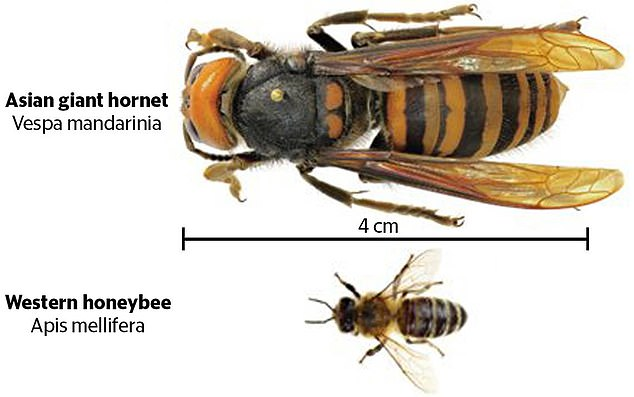Hornets have killed dozens of people in China and injured more than 1,500 with their powerful venomous sting.
The Asian giant hornet, known scientifically as Vespa mandarinia, carries a venom that destroys red blood cells, which can result in kidney failure and death, said Justin O. Schmidt, an entomologist at the Southwest Biological Institute in Tucson, Arizona.
But perhaps a bigger problem than the toxicity of the venom is allergy, Schmidt says. Some people are naturally more allergic to stinging insects than others; a sting can trigger a deadly anaphylactic reaction, which may involve airway closure or cardiac arrest.
Since July, hornet attacks have killed 42 people and injured 1,675 people in three cities in Shaanxi province, according to the local government. Among those attacked, 206 are receiving treatment in hospitals.
In person, the Asian giant hornet, which is the largest hornet species in the world, looks like “the wasp analog of a pit bull” with “a face that looks like you just can’t reason with it,” said Christopher K. Starr, professor of entomology at University of West Indes in Trinidad & Tobago.
These hornets are found throughout East and Southeast Asia, in countries such as in China, Korea, Japan, India and Nepal. (Apparently has now also reached America and something else for them to worry about).
And they’re big. The giant hornet extends about 3.5 to 3.9 centimeters in length (1.4 to 1.5 inches), roughly the size of a human thumb, and it has black tooth used for burrowing, according to an animal database at the University of Michigan. The queens are even bigger, with bodies that can grow longer than 5 centimeters (2 inches).
The species feed their young the larvae of other insects and use their mandibles to sever the limbs and heads of their prey.
Japan is familiar with Asian giant hornet stings, too. About 30 to 50 deaths are reported each year in Japan from such attacks, according to Japanese studies. Most of the deaths are due to allergies to the venom, Makino said.
The giant hornets are also destructive to western honeybees. Research in Japan suggests that tens of thousands of honeybee hives are damaged by the giant hornets each year.


https://edition.cnn.com/2013/10/03/world/asia/hornet-attack-china/index.html